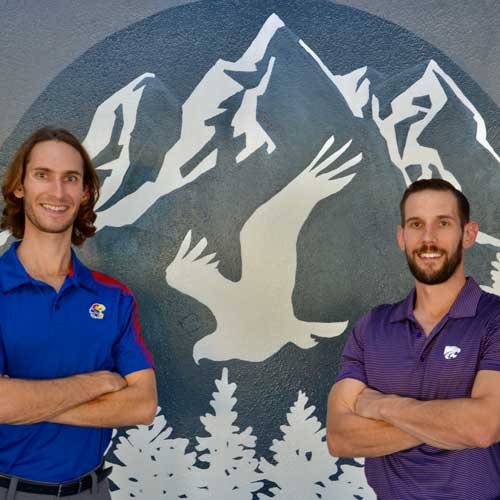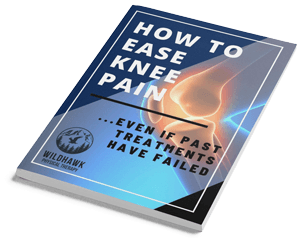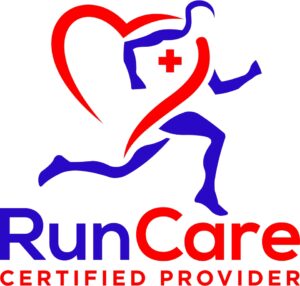
Introduction
Welcome to another informative blog post from WildHawk Physical Therapy. In this article, we will explore the essential topic of nutrition for ultra marathoners. Ultra marathons are grueling endurance races that test the limits of physical and mental endurance. To conquer these extraordinary challenges, you must pay special attention to your nutrition and fueling strategies. Whether you’re a seasoned ultra marathoner or aspiring to tackle your first ultra, understanding the role of nutrition is crucial for success.
The Ultra Marathon Challenge
Ultra marathons, races longer than the traditional marathon distance of 26.2 miles (42.2 kilometers), come in various formats, including 50K, 100K, 50 miles, 100 miles, and beyond. These races demand not only supreme physical fitness but also effective nutrition strategies to sustain energy levels and prevent performance setbacks.
Key Nutrition Considerations for Ultra Marathoners

As an ultra marathoner, your nutrition plan should focus on several critical areas:
1. Carbohydrate Loading: Carbohydrates are the primary fuel source for endurance athletes. In the days leading up to your race, increase your carbohydrate intake to top off glycogen stores in your muscles and liver.
Proper carbohydrate loading can significantly impact your performance. Start this process a few days before the race. Consume complex carbohydrates like pasta, rice, quinoa, and whole grains to ensure your energy reserves are fully stocked. This will provide you with sustained energy throughout the race.
2. During the Race: During an ultra marathon, you’ll need to replenish carbohydrates to maintain energy levels. This can be achieved through energy gels, chews, sports drinks, and real food like bananas or energy bars.
In ultra marathons, the key is consistency. Plan your nutrition strategy based on the race’s length and terrain. You may need to consume 200-300 calories per hour to sustain your energy. Experiment during your training runs to find out which foods and beverages work best for you and your stomach. The goal is to find a balance between easily digestible carbohydrates and foods that provide variety and satisfaction.
3. Hydration: Staying hydrated is essential. Develop a hydration plan that considers the weather conditions and your sweat rate. Electrolyte drinks can help replace lost salts during prolonged races.
Hydration is a critical aspect of ultra marathon nutrition. Dehydration can lead to cramping, fatigue, and impaired performance. Calculate your sweat rate during training to determine your fluid needs accurately. During the race, consume fluids regularly to maintain proper hydration. Electrolyte drinks can be particularly beneficial during long efforts to replace sodium, potassium, and other electrolytes lost through sweat.
4. Protein and Recovery: Don’t overlook protein. It aids in muscle recovery and repair. Consider incorporating protein-rich foods or supplements post-race to support your body’s healing process.
While carbohydrates are the primary focus during the race, protein becomes crucial for recovery. After an ultra marathon, your muscles will be in need of repair, and protein plays a key role in this process. Within 30 minutes to an hour post-race, consume a balanced meal or recovery drink containing protein and carbohydrates to kickstart the recovery process. Foods like lean meats, dairy, eggs, or plant-based options like beans and tofu are excellent sources of post-race protein.
5. Fat Adaptation: Some ultra marathoners adopt a “fat adaptation” strategy to use stored body fat as a fuel source. This approach requires careful planning and training, as it can take time for your body to adapt to burning fat efficiently.
Fat adaptation is a unique nutrition strategy that some ultra marathoners find effective. It involves training your body to use stored fat as a primary energy source, which can be beneficial for ultra races lasting many hours or days. To implement this strategy, reduce your carbohydrate intake during training while increasing fat consumption. Gradually extend the duration of your training sessions while minimizing carbohydrate intake to encourage your body to become more efficient at burning fat. However, fat adaptation may not be suitable for everyone, so consult with a sports nutritionist or dietitian before attempting this approach.
6. Timing and Consistency: Develop a race nutrition plan well in advance and test it during your training runs. Consistency in your nutrition strategy is key to avoiding surprises on race day.
A well-structured nutrition plan is vital for success in ultra marathons. This plan should outline what you’ll eat and drink before, during, and after the race. It should also include timing details, such as when to consume carbohydrates, fluids, and electrolytes during the event. Consistency is crucial because your body adapts to a routine. Deviating from your usual nutrition strategy on race day can lead to digestive discomfort or energy imbalances.
7. Avoid Overeating: While you need to fuel your body adequately, avoid overeating, as it can lead to digestive issues and discomfort during your run.
Overeating, especially in the latter stages of an ultra marathon, can lead to gastrointestinal problems. Your body’s ability to digest and process food diminishes as the race progresses, making it essential to balance your caloric intake. While you may be tempted to eat large quantities to sustain energy levels, it’s essential to do so in moderation. Stick to your predetermined nutrition plan to avoid the discomfort and potential performance hindrance associated with overeating.
8. Special Dietary Needs: If you have dietary restrictions or allergies, plan accordingly. There are a variety of specialized sports nutrition products available to accommodate different dietary needs.
If you have specific dietary restrictions or allergies, it’s crucial to plan your ultra marathon nutrition accordingly. Fortunately, many sports nutrition products cater to various dietary needs, including gluten-free, vegan, and allergen-free options. Look for products that align with your dietary preferences and requirements. It’s essential to read labels carefully to ensure you’re not consuming any allergens or ingredients that may cause adverse reactions during the race.
Recovery Matters

After completing an ultra marathon, proper recovery is paramount. Replenish lost fluids and electrolytes, refuel with carbohydrates and protein, and don’t neglect stretching and mobility exercises to aid muscle recovery.
Recovery is an often overlooked but essential aspect of ultra marathon nutrition. Immediately after completing an ultra marathon, your body is in a state of depletion, and the recovery process begins. To promote optimal recovery, follow these guidelines:
1. Rehydrate: Begin by rehydrating to replace fluids lost during the race. Sip on water or an electrolyte drink to help restore your body’s fluid balance.
2. Restore Electrolytes: Electrolytes play a crucial role in muscle function and hydration. Consume foods or drinks that contain sodium, potassium, magnesium, and calcium to help replenish lost electrolytes.
3. Carbohydrate and Protein Intake: Within 30 minutes to an hour post-race, consume a balanced meal or recovery drink that includes carbohydrates and protein. This helps kickstart muscle recovery and glycogen replenishment.
4. Stretch and Mobilize: Gentle stretching and mobility exercises can help prevent post-race stiffness and soreness. Spend some time performing stretches for major muscle groups and incorporate foam rolling or self-massage techniques.
5. Rest: Give your body the rest it deserves. Adequate sleep and restful days following an ultra marathon are crucial for complete recovery.
Consult a Sports Nutritionist
Individual nutrition needs can vary significantly. Consider working with a sports nutritionist or dietitian who specializes in endurance sports to create a personalized nutrition plan tailored to your specific requirements.
Conclusion
Nutrition is a cornerstone of success for ultra marathoners. With the right fueling strategies, you can conquer extraordinary challenges and push your physical and mental limits. Whether you’re aiming to finish your first ultra marathon or set a new personal record, a well-structured nutrition plan can make a world of difference.
At WildHawk Physical Therapy in Asheville, NC, we understand the unique demands of ultra marathoners. Our team of experts is here to provide guidance on nutrition, injury prevention, and rehabilitation to help you reach your goals. If you’re an ultra marathoner looking for professional support, don’t hesitate to reach out to us. Your extraordinary journey deserves exceptional care.
Remember, successful ultra marathon nutrition requires careful planning, experimentation, and adaptation. Train hard, fuel smart, and embrace the challenges that lie ahead on your path to ultra marathon greatness.
Frequently Asked Questions
Q: Can I rely solely on sports gels and drinks during an ultra marathon?
A: While gels and drinks provide quick energy, it’s essential to incorporate real food for variety and to meet your nutritional needs over the long haul. Real food can also help prevent digestive issues.
Q: How can I prevent “hitting the wall” during an ultra marathon?
A: Consistent fueling, including carbohydrates and hydration, is crucial to prevent bonking. Train your body to take in fuel regularly during long runs to avoid energy crashes.
Q: What’s the best way to manage stomach issues during an ultra marathon?
A: Experiment with different foods and hydration strategies during training to identify what works best for your stomach. Avoid trying new foods or drinks on race day.
Q: Are there specific nutritional strategies for running in extreme conditions (e.g., high altitude, extreme heat)?
A: Yes, extreme conditions require special consideration. Adjust your hydration and electrolyte intake accordingly, and plan for additional carbohydrates to compensate for increased energy expenditure.








